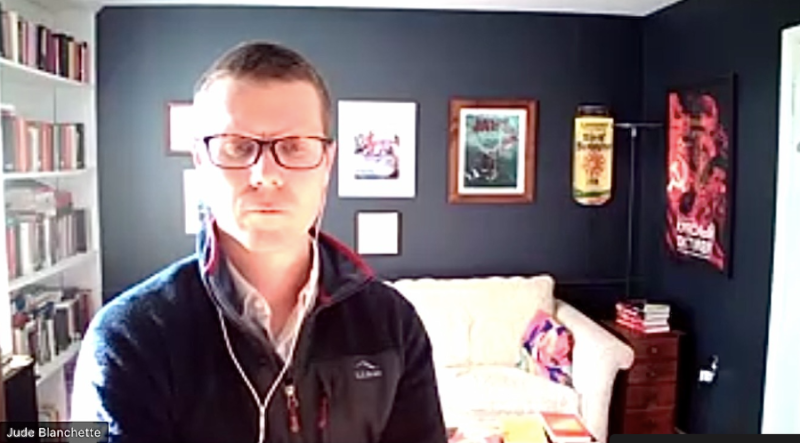Chinese President Xi Jinping is shifting power day by day away from the West, said Jude Blanchett — the Center for Strategic and International Studies’ Freeman chair in China Studies —at a Wednesday event.
Xi’s success in doing so — accomplishing what his predecessors could not — is rooted in his ability to pick and choose elements of different ideologies to govern, all while publicly casting his actions as communist.
“There’s not very much about Xi Jinping that is truly socialist or communist,” Blanchett said.
Xi brought a new type of leadership in his rise to power, according to Blanchett: “He was clearly frustrated with the kind of ostentatiousness of the Communist Party — the kind of formality of it, the long meetings,” he said. Although Xi assumed the dictatorial aspects of the Chinese Communist Party, he also brought his own style into the government.
Now, even as the president of China adheres to elements of China’s existing political architecture in the interest of maintaining power, he is also boosting the semi-private economic sector of China to achieve industrialization goals defined by the state. This breaks from the traditional communist approach of an economy thoroughly controlled and operated by the state.
Blanchett added that the government under Xi has not been afraid to cross every ethical standard to achieve its aims, from threatening the press to outright genocide of the Uighur people. However, the control the Chinese government has over the country has allowed it to escape some of the challenges the U.S. has recently faced, such as the January attack on the Capitol and the Texas power crisis, Blanchett explained.
Thus, Xi’s leadership has propelled China as a global power: “We’re seeing a fundamental global shift in power away from the West and towards the East,” Blanchett said.
If the U.S. hopes to catch up with China, Blanchett explained, it needs to re-examine three traditional understandings of the CCP that do not accurately describe its current path.
The first is the Western view that the CCP cannot be communist “because of the growing role of markets” throughout the country. The second is the belief taken by some Western politicians, including former Secretary of State Mike Pompeo, which declares that the CCP’s very name must be taken at face value. The third hails directly from CCP publications, which also write that China is a communist state.
Blanchett disagrees with all three of these views, though he has more answers to what the Chinese government is not than what it is.
Looking to past definitions of communism will not help in understanding the current CCP, according to Blanchett. He said Karl Marx’s teachings could only go so far before reaching uncharted territory, because Marx never clearly defined how a communist state order would be maintained. And the implementation of communist governments of Lenin, Stalin and Mao were “an unmitigated disaster,” according to Blanchett.
Perhaps the best way to understand the regime — and how the modern CCP is distinct from the Leninist regimes that dominated the mid-twentieth century — is that the CCP does not set a definitive timeline for their transformation to communism.
“The CCP charter constitution says the party’s highest ideal and ultimate goal is the realization of communism,” Blanchett said. “However, the CCP has always been smart enough to leave that as an over the horizon goal.”
A fundamental misunderstanding of the CCP prevents Western leaders from being able to predict and react to Xi’s advances.
“We need a much better calibration of how strong China is or how weak,” he said.
